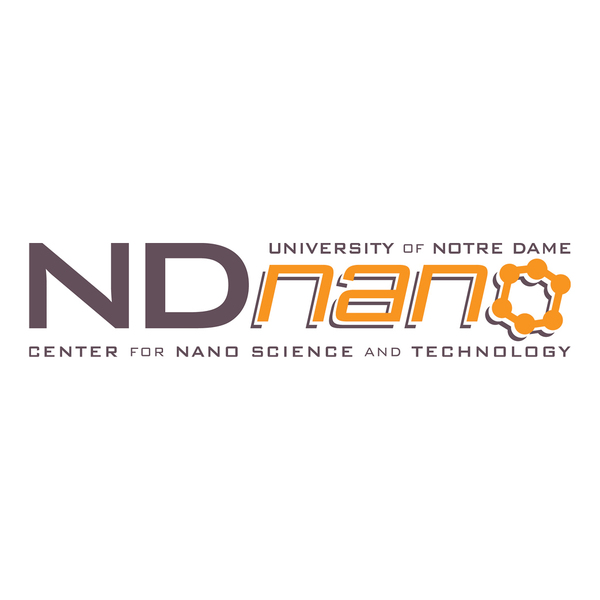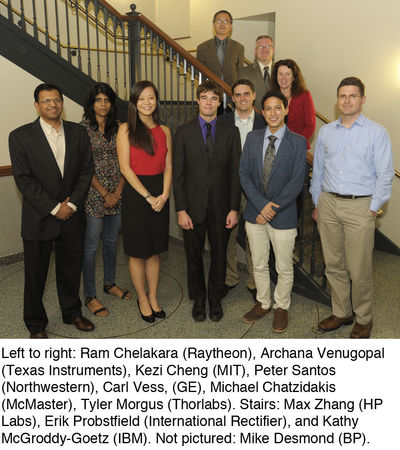

Peter Santos, a senior at Northwestern University, won first place and $3,000 in the fourth annual NDConnect undergraduate research competition held at the University of Notre Dame on October 17.
NDConnect is a national competition to recognize outstanding undergraduates in nanoscience and nanoengineering. The 16 finalists (below), representing universities throughout the U.S. and Canada, were selected from applicants who submitted research proposals in the spring, then followed up with a report in August documenting their research findings.
As part of the competition, the students each gave a short presentation of their research, then provided the industry judges more in-depth information in an afternoon poster session.
Peter’s project, entitled “Self-assembly of a DPP tripod donor for organic photovoltaics,” focused on creating more efficient, low-cost solar cells to provide a clean source of energy (see side bar). His research was directed by Prof. Samuel Stupp.
“Peter was working on materials for inexpensive solar cells and had the idea of synthesizing a novel molecule,” said Dr. Kathy McGroddy-Goetz, who represented IBM on the judges panel. “He showed a huge amount of initiative by pitching his idea to his advisor, performing simulation to justify further investigation, synthesizing the molecule, and doing lab bench chemistry and a lot of characterization to demonstrate significant meaningful results. He is also one of the students who used a food analogy – something we can all relate to – to make their complex concept more consumable to non-experts.”
Dr. McGroddy-Goetz added that the judges’ decision was very difficult as they were “incredibly impressed” by all the students’ projects.
Second place and $2,000 was awarded to Michael Chatzidakis, a senior in materials science and engineering from McMaster University. Michael’s research project, “Phase separation in immiscible bimetallic nanoparticles,” was directed by Prof. Jeffrey Hoyt and Prof. Gianluigi Botton.
“The theoretical calculation in Michael’s project was very complex, and he did a great job of marrying the theory to his experimental results,” said Dr. Ram Chelakara of Raytheon. “In addition, his year-long project reflected favorably on his perseverance and future potential for graduate research.”
Dr. Chelakara added, “This is my second year as a judge at NDConnect, and I continue to be amazed at the quality, sincerity, and passion the finalists have for science and technology.”
Kezi Cheng, a senior in materials science and engineering at Massachusetts Institute of Technology, claimed third place and a $1,000 prize. The title of her research was “Processing approaches for thin-film energy storage devices: Increase energy density of high power density graphene-based supercapacitors through C60 fullerenes.” Kezi’s adviser during her summer of research at Oxford University was Prof. Patrick Grant.
“Kezi was the judges’ choice for third place based in no small part on her determination to pursue research interests that she had a passion for,” said Erik Probstfield from International Rectifier. “She found a topic of her own after reading various papers and convinced her supervising professor to allow her to pursue the project. With relatively minimal facilities and resources for the project, she was able to develop significant understanding of the materials system in question as well as deliver significant results in just three months.”
Event sponsors were Thorlabs, HP Labs, IBM, Texas Instruments, Seagate, Raytheon, International Rectifier, GE Global Research, and BP.